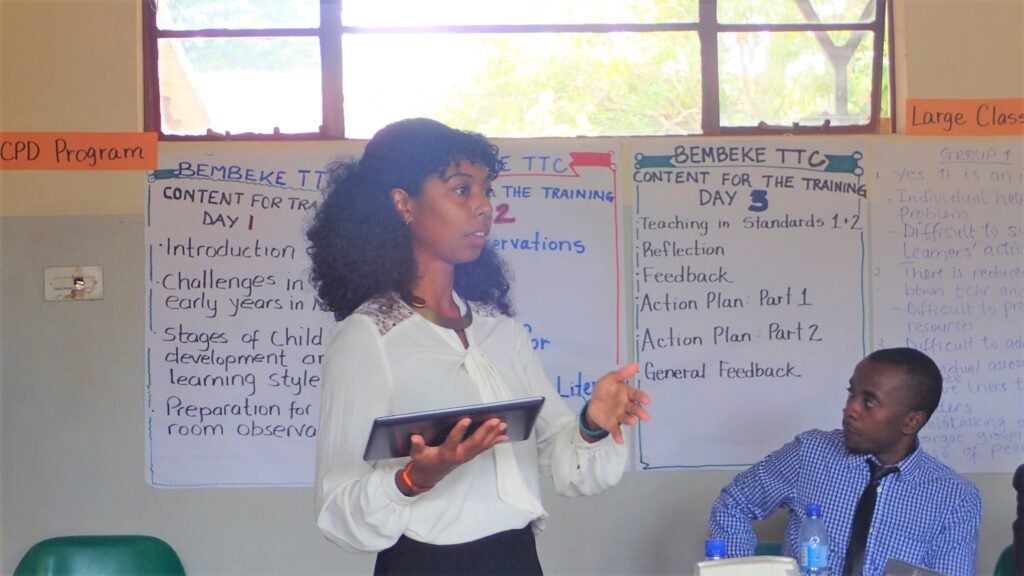
As an English Language Fellow in Malawi, 2016-2018, Deborah Rodríguez García focused on one of her most passionate causes: improving early childhood education for disadvantaged children. Her work took on numerous forms, including teacher trainings and workshops, classroom observations and mentoring, and relationship-building with various stakeholders and community members. “Building great relationships was the key to everything I did during my fellowship,” Rodríguez García said. “Having close communication not only with teachers, administrators, and policy-makers, but also with the parents and caregivers, helped me develop my understanding of the context and the particular needs of these young learners.”
One of Rodríguez García’s most significant projects was conducted through the Let Girls Learn initiative. This two-week training developed strong literacy teaching skills for dozens of regional teachers at secondary schools throughout the region. First, Rodríguez García helped plan and facilitate a series of intensive training sessions on best classroom practices for a group that included both local educators and Peace Corps teacher trainers. Then, they observed and coached the trainers during their in-class practicums with pre-service teachers in various high-need secondary schools. From the success of this project, Rodríguez García gleaned an important takeaway. “Being able to work on the macro-level with national government officials to establish the curricula and shape teacher training programs such as this, while also being ‘on the ground’ to help implement it, enabled me to better meet the needs of the teachers in rural communities,” she explained.
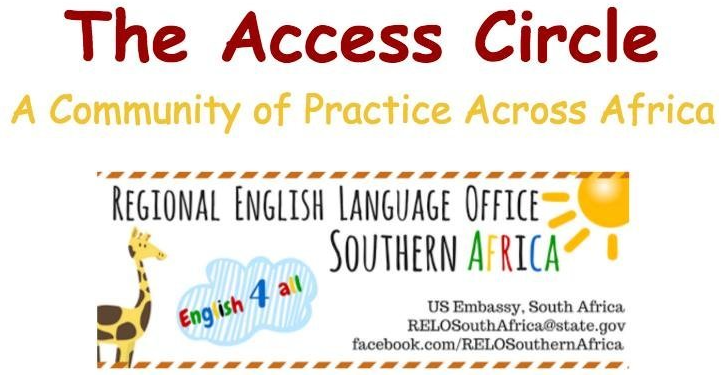
Another pedagogical highlight for Rodríguez García was her work on The Access Circle: A Community of Practice Across Africa, a four-part webinar series for the U.S. Department of State English Access Microscholarship Program and Regional English Language Office that focused on regional educational needs such as student involvement, educational technology, and classroom management. “Unlike most of my ELT colleagues at the time, I had little opportunity to utilize technology with my Malawian counterparts,” Rodríguez García said. “Doing the Access webinars was a great way to tap into the tech side of teaching during my fellowship as well.”
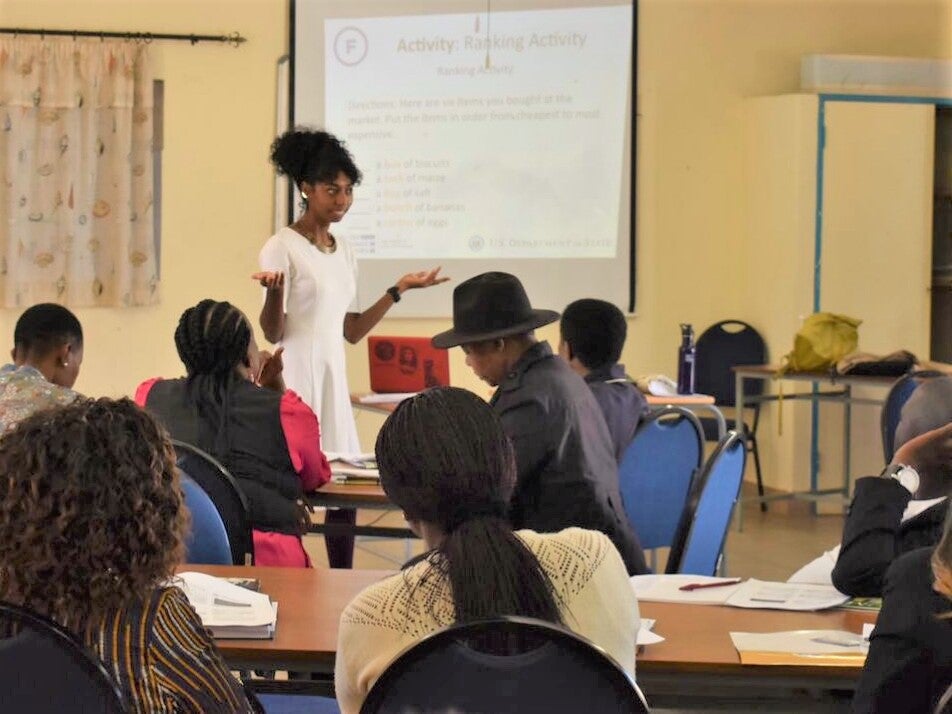
Application of New Skills
Rodríguez García’s love for living and working in Malawi was such that she stayed in the country for another two years after her fellowship ended, continuing her work as a consultant for early childhood education reform. Upon returning to the U.S., Rodríguez García found a new role that was a perfect platform for the synthesis of the relationship-building skills and pedagogical approaches she had honed during her fellowship. As manager for education programs in humanitarian settings through Sesame Workshop, the nonprofit behind Sesame Street, Rodríguez García is leading curriculum development for the production of high-quality play-based multimedia and print content; her team provides early childhood educational toolkits for responding to emergency situations such as forced displacement and natural disasters.
In this role, Rodríguez García also works closely with several policy-makers and NGO partners. “Being able to facilitate conversations and cultivate relationships with various stakeholders is essential to establishing educational programming in challenging settings,” Rodríguez García stated. “The Fellow program prepared me to confidently and successfully manage these types of professional relationships and challenges.” Rodríguez García also credits her curriculum work in Malawi with giving her insights into how to best develop accessible and effective content for Sesame Workshop, taking into account the social and emotional factors in children’s cognitive development.
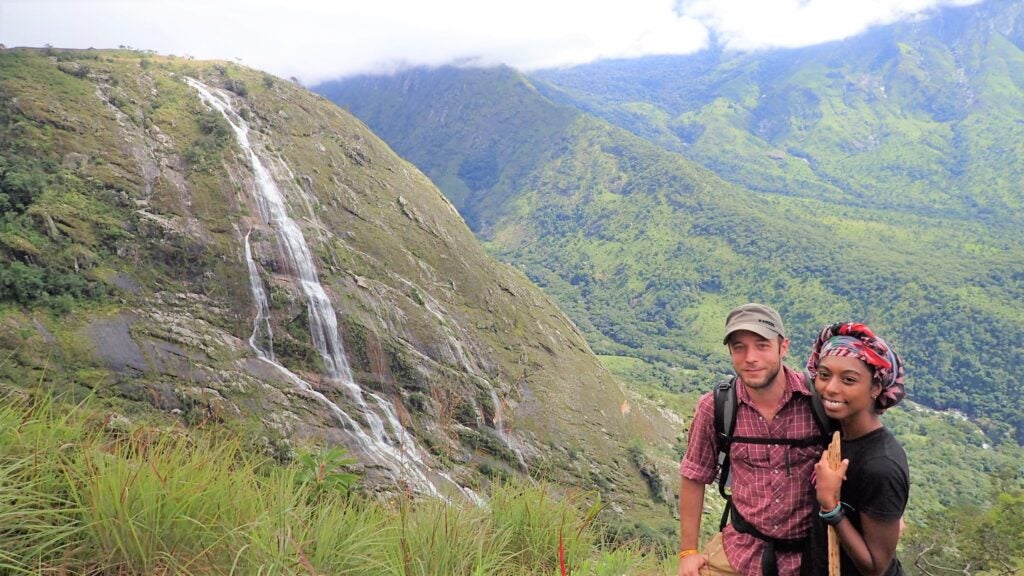
A Land of Rare Beauty
When Rodríguez García first arrived in Malawi, she was struck by the spectacular natural beauty of the landscape, with its soaring green highlands shrouded in mist and surrounded by a vast silence. But if the place had a mystical aspect to it, it was also, she noted, quite remote. What shape might her life take in this tiny village, she wondered?
Soon after her arrival, she found that living in the small village of Liwonde afforded her and her husband, Paul, the chance to immerse themselves into their community and absorb the local customs. Her guides in these matters were often the enthusiastic local children, eager to meet and teach the new members of their community. “The children in the village were our little cultural ambassadors,” Rodríguez García noted. “We learned so much from them about village life, and we engaged in language exchange too.” During the second year of her fellowship when Rodríguez García had a car, she even had the chance to bring several of the village children on safari, where they practiced using their English animal vocabulary Rodríguez García and her husband had taught them.
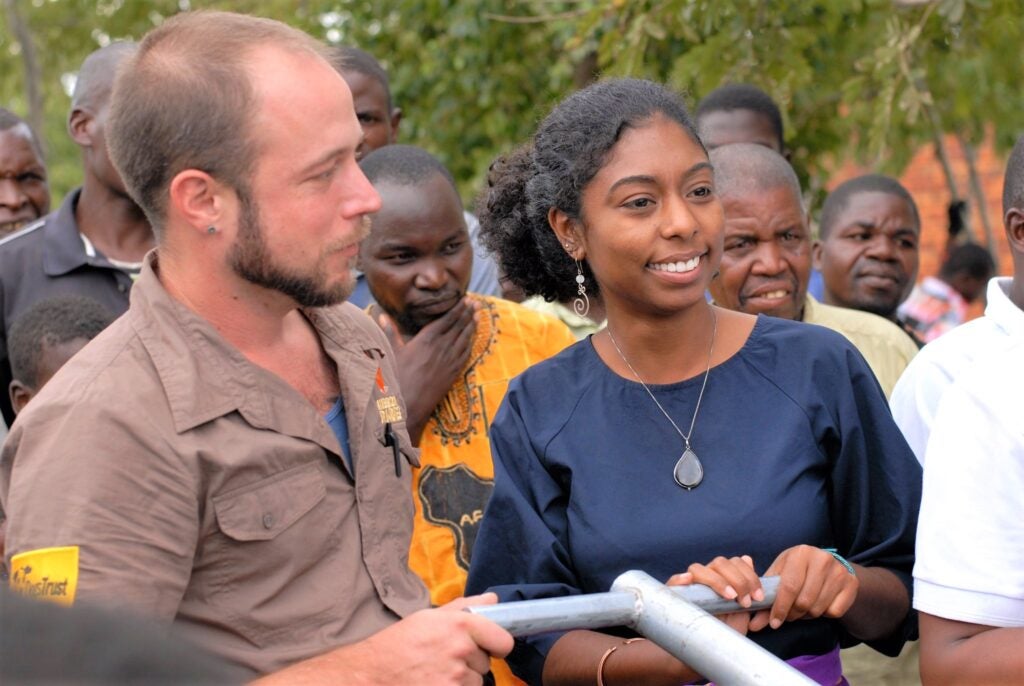
One culminating cultural event was the celebration of the new village water pump. This ceremony included traditional dancing and singing, prayer, a speech by the village chief, and finally, each member of the community taking a turn with the new pump. “To be so warmly embraced by such a unique, close-knit community,” Rodríguez García said, “and to share the joy of this moment with them, is something I’ll never forget.”

Deborah Marie Rodríguez García was an English Language Fellow in Malawi, 2016-2018. She has over 10 years of experience in education and program management, including curriculum development and teacher training in Malawi, Nicaragua, Bolivia, India, South Africa, Ethiopia, Honduras, Bangladesh, the Middle East, and the United States. She also has experience managing programs in the Middle East and Bangladesh. Currently, she is extending educational opportunities for Rohingya refugees in Cox’s Bazar, Bangladesh, as the education manager for Sesame Workshop’s humanitarian programs.
